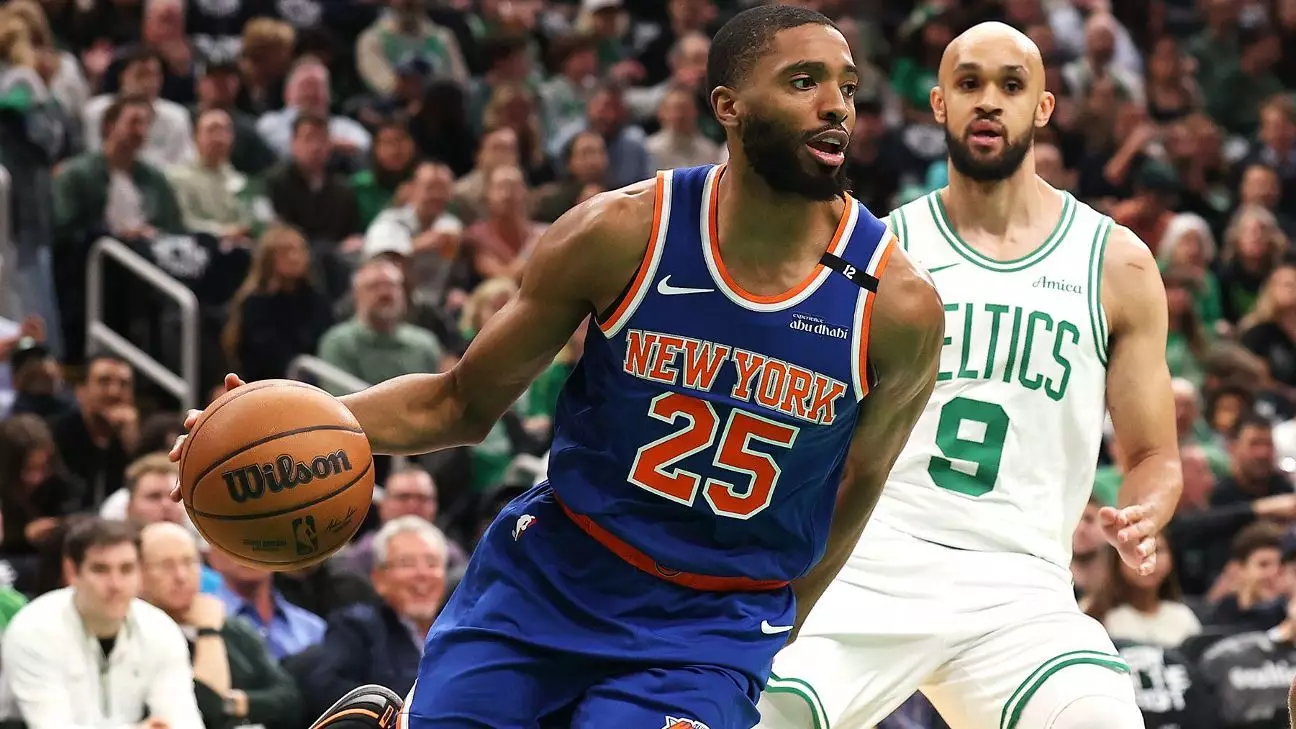Mikal Bridges’ recent four-year, $150 million extension with the New York Knicks marks more than just a financial milestone; it signals a calculated move rooted in strategic optimism. While some may argue that Bridges accepted a slight discount from his maximum allowable value, this act demonstrates a commitment to the team’s long-term vision and roster stability. In the context of NBA economics, this decision reflects a franchise emerging from a period of rebuilding with a clear intent to contend. It exemplifies a broader philosophy: investment in versatile players who can adapt and elevate the team’s competitive edge over time.
The inclusion of a player option for 2029-30 further conveys a nuanced approach. It offers Bridges flexibility to re-evaluate his career trajectory, while simultaneously granting the Knicks the leverage to retain him or pivot if circumstances shift. This layered approach underscores that, in today’s NBA, smart cap management is intertwined with fostering player loyalty and confidence. By negociaring such terms, the Knicks hope to secure stability with a core piece that complements their star guard, Jalen Brunson, and a rising roster hungry for postseason success.
From Uncertainty to Commitment: The Significance of His Contract
Bridges’ journey to this contract was fraught with questions about his future with the Knicks, especially after an inconsistent first season post-trade. His initial move from Brooklyn to New York, involving five first-round picks, carried palpable expectations. Yet, his transition was complicated by adjustment challenges—positioning himself primarily as a perimeter defender rather than the primary offensive option he had been in Brooklyn. Early in the season, his reduced free throw attempts and fluctuating involvement raised eyebrows, sparking whispers about possible trades or a diminished role.
However, the resilience Bridges demonstrated speaks volumes. By season’s end, he was a pivotal contributor in high-stakes moments, notably during the Knicks’ historic run to the Eastern Conference Finals—the team’s first in a quarter-century. His defensive tenacity and efficient scoring in clutch moments revealed the qualities New York envisioned when acquiring him. This contract is, in many ways, a testament to his growth and the franchise’s recognition of his increasing value. It reflects a shift from viewing Bridges as a mere piece of the puzzle to acknowledging him as a cornerstone that can anchor the team’s defensive identity and perimeter threat.
Strategic Flexibility and the Future of the Knicks
The broader context surrounding this deal is perhaps the most telling. With Jalen Brunson’s contract extension secured for 2024, the Knicks now operate with more financial room to maneuver. These signings bolster their capacity to pursue complementary talent in subsequent offseasons, illustrating a masterclass in salary cap management. Their strategic patience—offering Bridges a slightly discounted extension—indicates a clear plan to remain competitive without sacrificing long-term flexibility.
Furthermore, the inclusion of a trade kicker, though seemingly minor, adds a layer of strategic leverage. It signals to Bridges that the team values his contributions sufficiently to incentivize him with options that could benefit both him and the franchise if trade scenarios arise. This move highlights the franchise’s intent to build a resilient, adaptable squad capable of responding dynamically to evolving playoff demands.
The Knicks’ recent signings also imply a confident belief in internal development, with Bridges exemplifying the player who has matured from a defensive specialist into an all-around contributor. His willingness to voice concerns about heavy minutes and physical tolls indicates a player committed to both personal sustainability and team success. The decision to lock him in long-term, despite initial uncertainties, exemplifies a belief that his versatility and leadership will be instrumental in pushing the franchise closer to championship contention.
—
This detailed analysis unearths the underlying strategic thinking of the Knicks’ management, revealing that this contract is more than just a financial arrangement. It is a statement of intent—an affirmation that Bridges is integral to their evolving identity and future prospects. The club’s nuanced approach balances immediate impact with sustainable growth, setting a blueprint for how winning organizations leverage player development and cap flexibility to reinforce their championship pursuits.

